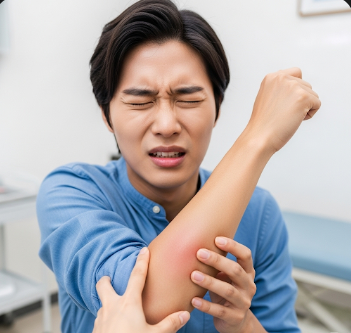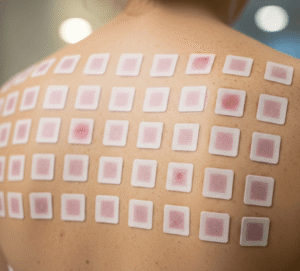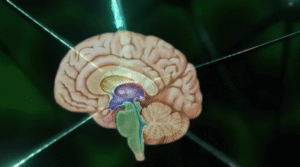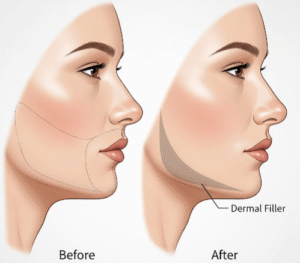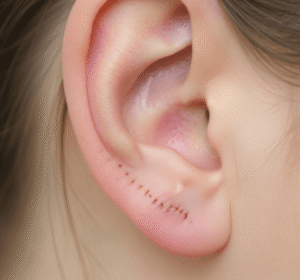Overview
Hyperesthesia is a condition characterized by increased sensitivity of the senses, most commonly touch, but sometimes also to pain, sound, or light. Individuals with hyperesthesia perceive stimuli more intensely than usual, which can lead to discomfort, pain, or sensory overload.
Hyperesthesia can result from nerve damage, neurological disorders, infections, medications, or metabolic conditions. In South Korea, neurology and pain clinics provide diagnostic evaluations, therapy, and treatment to help patients manage hyperesthesia and improve daily functioning.
Key Facts
🟢 ➤ Hyperesthesia is an increased sensitivity to sensory stimuli, including touch, pain, sound, or light.
🟢 ➤ It may be localized (specific body area) or generalized (affecting the entire body).
🟢 ➤ Common causes include nerve injury, neuropathy, infections, metabolic disorders, or medication side effects.
🟢 ➤ Symptoms range from mild discomfort to severe pain or sensory overload.
🟢 ➤ Management focuses on treating the underlying cause, reducing sensory sensitivity, and improving quality of life.
🟢 ➤ South Korean clinics offer multidisciplinary care, including neurological assessment, pain management, and rehabilitative therapies.
What is Hyperesthesia?
Hyperesthesia occurs when nerve signals are amplified, making normal sensory input feel intense, painful, or overwhelming.
Key points:
➤ Can involve one sense or multiple senses, but tactile hyperesthesia (sensitivity to touch) is most common.
➤ Often associated with neurological conditions such as peripheral neuropathy, spinal cord injury, multiple sclerosis, or post-herpetic neuralgia.
➤ Hyperesthesia can be temporary (due to injury, infection, or medication) or chronic (linked to long-term nerve dysfunction).
➤ May also be accompanied by paresthesia (tingling), allodynia (pain from non-painful stimuli), or hyperalgesia (increased pain sensitivity).
Symptoms Related to Hyperesthesia
Symptoms vary depending on type, cause, and affected area:
🟢 ➤ Increased sensitivity to touch, pressure, or clothing on the skin.
🟢 ➤ Pain or discomfort from mild stimuli, such as brushing hair or light contact.
🟢 ➤ Sensitivity to temperature, causing discomfort in hot or cold conditions.
🟢 ➤ Visual or auditory hyperesthesia – bright lights or loud sounds feel overwhelming.
🟢 ➤ Tingling, burning, or prickling sensations may accompany the increased sensitivity.
🟢 ➤ Emotional symptoms: irritability, anxiety, or avoidance of stimuli that trigger discomfort.
Causes / Possible Causes
Hyperesthesia can result from a variety of neurological, metabolic, and medical conditions:
Neurological Causes
➤ Peripheral neuropathy (e.g., diabetes, vitamin deficiencies).
➤ Nerve compression or injury (spinal cord injury, nerve trauma).
➤ Central nervous system disorders (multiple sclerosis, stroke, post-stroke recovery).
Infections and Inflammatory Conditions
➤ Post-herpetic neuralgia (after shingles infection).
➤ Inflammatory neuropathies or autoimmune diseases affecting nerves.
Medication-Induced Causes
➤ Certain chemotherapy agents, antibiotics, or other drugs may trigger hyperesthesia.
Metabolic and Systemic Disorders
➤ Diabetes, hypothyroidism, or vitamin deficiencies (B12) can increase nerve sensitivity.
Idiopathic or Rare Causes
➤ Sometimes hyperesthesia occurs without an identifiable cause, requiring careful neurological assessment.
When Should I See a Doctor?
Consult a healthcare provider if:
🟢 ➤ Increased sensitivity causes pain, discomfort, or interferes with daily life.
🟢 ➤ Symptoms appear suddenly or progressively worsen.
🟢 ➤ Hyperesthesia is associated with other neurological symptoms like weakness, numbness, or balance problems.
🟢 ➤ There is a history of chronic disease, medication use, or recent infection.
Early evaluation helps identify underlying causes, prevent nerve damage, and initiate targeted treatment.
Care and Treatment
Management of hyperesthesia involves addressing the root cause, reducing sensory overload, and improving quality of life:
Medical Management
➤ Medications for neuropathic pain (gabapentin, pregabalin, or duloxetine).
➤ Anti-inflammatory drugs if hyperesthesia is linked to inflammation.
➤ Adjusting or discontinuing medications that may trigger symptoms.
Therapeutic Approaches
➤ Physical therapy to desensitize affected areas and improve function.
➤ Occupational therapy to help adapt daily activities and reduce triggers.
➤ Sensory integration therapy for those with multiple sensory sensitivities.
Lifestyle and Home Strategies
➤ Avoid tight clothing or harsh fabrics that irritate the skin.
➤ Gradual exposure to stimuli may help desensitize over time.
➤ Stress management and relaxation techniques reduce central sensitization of nerves.
Advanced Care in Korea
➤ Neurology and pain management centers provide comprehensive diagnostic evaluation, including nerve conduction studies and imaging.
➤ Multidisciplinary care includes neurologists, physiotherapists, and occupational therapists for tailored management.
➤ Patient education programs support long-term management and coping strategies.
Highlights (Clean Green Arrow Version)
🟢 ➤ Hyperesthesia is an increased sensitivity of the senses, most commonly touch, pain, sound, or light.
🟢 ➤ Symptoms: exaggerated response to stimuli, discomfort, tingling, burning, and sensory overload.
🟢 ➤ Causes: nerve damage, neuropathy, infections, metabolic disorders, medications, or idiopathic reasons.
🟢 ➤ Early evaluation is crucial to prevent complications, manage pain, and improve function.
🟢 ➤ Treatment includes medications, therapy, lifestyle adjustments, and sensory desensitization.
🟢 ➤ South Korea offers multidisciplinary care, including neurological assessment, pain management, and rehabilitative therapies.

